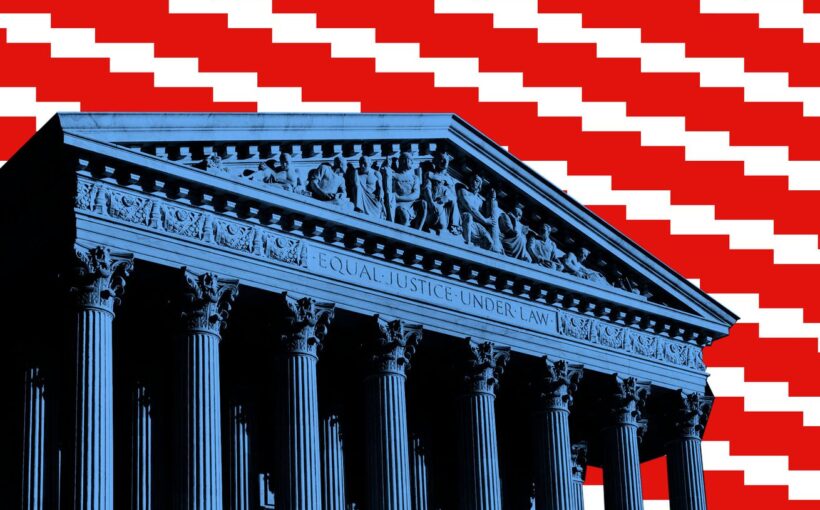
The Supreme Court maintained access to the abortion pill mifepristone, unanimously refusing to hear a case brought by a number of anti-abortion organizations and doctors over the Food and Drug Administration’s (FDA) approval of the pill.
“The plaintiffs have sincere legal, moral, ideological, and policy objections to elective abortion and to FDA’s relaxed regulation of mifepristone,” Justice Brett Kavanaugh wrote in the majority opinion issued Thursday. “But under Article III of the Constitution, those kinds of objections alone do not establish a justiciable case or controversy in federal court.”
In 2022 — after the Supreme Court’s decision in Dobbs v. Jackson Women’s Health Organization, the ruling that overturned Roe v. Wade — a newly established group that called itself the Alliance for Hippocratic Medicine (AHM) challenged the FDA’s approval of mifepristone. In a federal suit filed in Amarillo, Texas, the AHM questioned the safety of mifepristone and said the existence of the pill meant doctors who objected to abortion on moral grounds would nonetheless be forced to treat patients who had taken the abortion pill and experienced adverse side effects. Matthew J. Kacsmaryk, the federal judge presiding over the case — who hears all civil suits filed in Amarillo and who had been appointed by then-President Donald Trump — ruled in favor of AHM in 2023, calling abortion providers “abortionists” in his decision to take mifepristone off the market.
After the Justice Department challenged the decision on behalf of the FDA and Danco Laboratories, the drug manufacturer that makes the pill, an appeals court scaled back Kacsmaryk’s ruling. A three-judge panel on the US Court of Appeals for the Fifth Circuit let mifepristone stay on the market but reversed a 2016 FDA regulation that had made the pill easier to access. The Department of Justice then appealed that decision to the Supreme Court, arguing that the AHM lacked standing to sue the FDA.
In Thursday’s ruling, the Supreme Court agreed. “Plaintiffs are pro-life, oppose elective abortion, and have sincere legal, moral, ideological, and policy objections to mifepristone being prescribed and used by others. Because plaintiffs do not prescribe or use mifepristone, plaintiffs are unregulated parties who seek to challenge FDA’s regulation of others,” wrote Kavanaugh, who ruled in favor of Dobbs. But the AHM failed to show how patients taking mifepristone would force anti-abortion doctors to “participate in an abortion.” The doctors, in other words, failed to show how they had been or could be affected by the existence of mifepristone besides objecting to its availability.
Kavanaugh’s decision states that the AHM’s argument could lead to “a new doctrine of doctor standing” that would, in turn, allow any group of professionals to sue over policies they didn’t agree with. “Firefighters could sue to object to relaxed building codes that increase fire risks,” Kavanaugh wrote. “Teachers in border states could sue to challenge allegedly lax immigration policies that lead to overcrowded classrooms.”
But the court did not rule on the merits, which means future legal challenges could be on the horizon. In fact, Kavanaugh’s decision notes that, despite their lack of standing, the AHM has other avenues through which to challenge the FDA’s approval of mifepristone, including through the regulatory process or by supporting legislation.
Pro-choice groups are taking the decision as a tentative victory. Meanwhile, anti-abortion groups have spoken out against the court’s decision, but their statements suggest they’re taking the ruling as a momentary setback. Erin Hawley, the chief counsel for the Alliance Defending Freedom who served as co-counsel for the AHM, said the court’s decision was “based on a legal technicality.”
“We are very hopeful that the federal courts will have a chance to hold the FDA accountable for its unlawful actions and removing these longstanding safeguards for women,” Hawley said in a statement.



